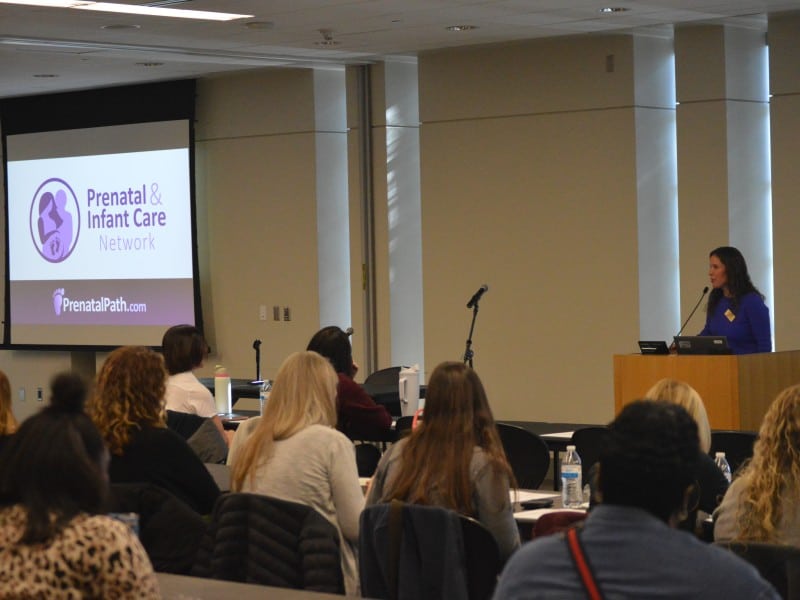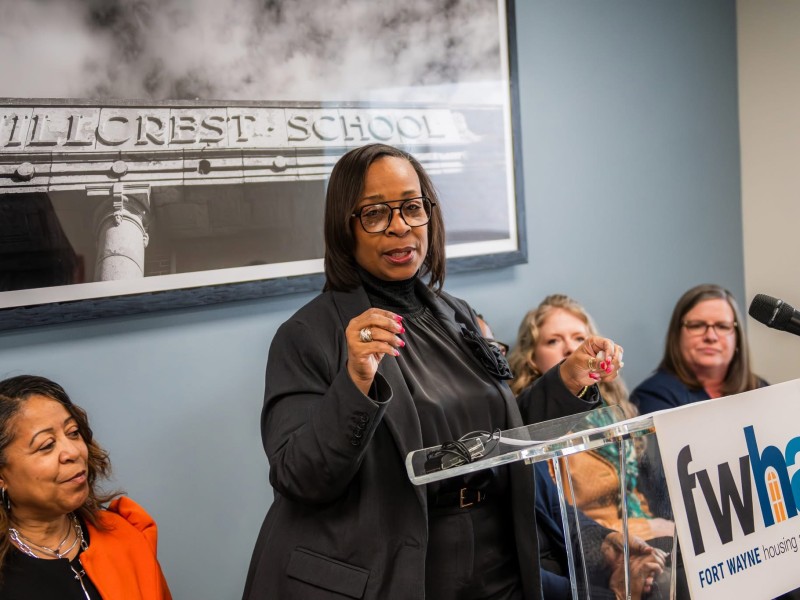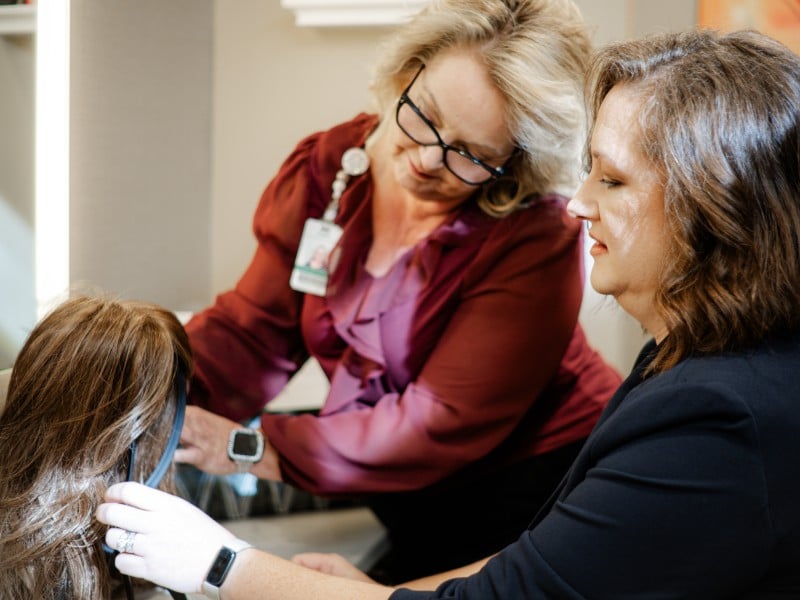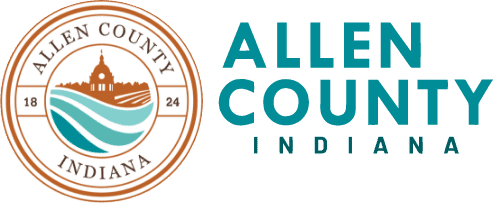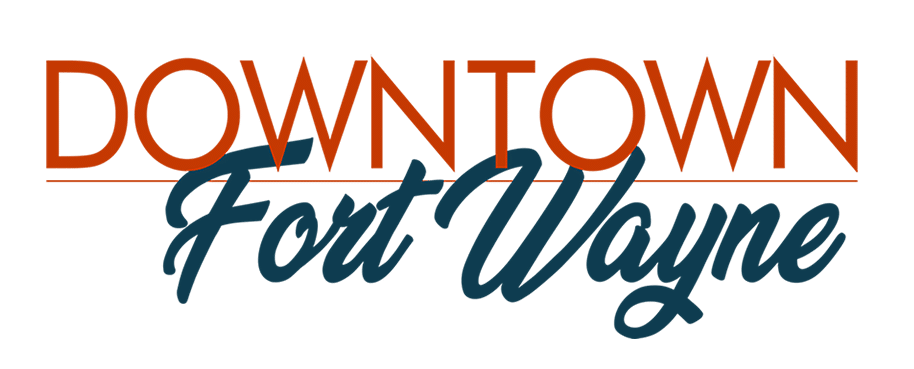Fort Wayne business leaders say remote work has not hurt company culture or productivity
Almost a year after the COVID-19-induced national shutdown, four local corporations weigh in on their work-from-home experience and how it will impact their company’s future.
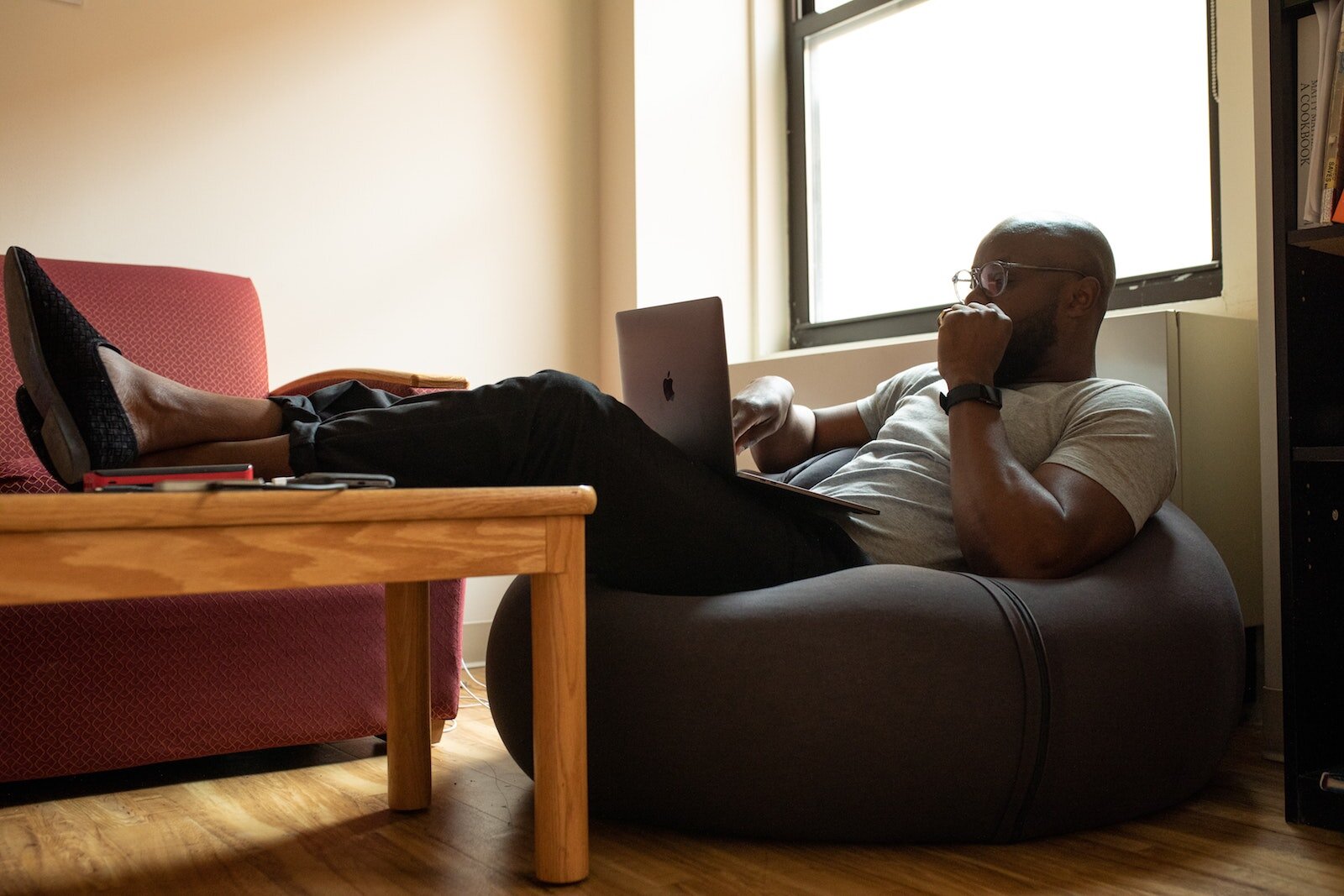
Prior to the COVID-19 pandemic, Fort Wayne had a fairly traditional business environment. Many local companies—even those operating across the U.S.—relied heavily on in-person interactions, 9-to-5 schedules, and physical office spaces.
So when the national shutdown began last spring, many of the city’s corporations resorted to a predominantly work-from-home model for the first time.
As offices closed, business leaders wondered how their teams would fare. Would working from home hurt company culture or productivity?
Looking back almost a year later, four corporate business leaders in Fort Wayne reflect on the experience—and whether remote work will play a larger role in their company’s future.
Ash Brokerage
“The notion of a work/life balance implies one has to be sacrificed for the other at different times, but the current environment has shed light on just how easily the two can be blended together without negatively impacting each other.”
-Ryan Fox, Talent Acquisition and Career Development Leader

Tell us a little bit about Ash Brokerage.
RF: We are an insurance brokerage general agency working in Life, Disability, Long Term Care, and Annuities. Downtown Fort Wayne is our headquarters, and it’s where roughly 280 of our 420 employees sit.
How did COVID-19 affect your work environment?
RF: COVID-19 really has caused us to look at our approach within our industry—since the insurance industry has traditionally had a meet-in-person, shake hands, and visit offices type of environment.
When COVID hit the U.S. last spring, we sent most of our employees home. We needed to maintain a core group of people in the office: Our IT help desk and infrastructure team, and our mailroom, to name a few, and we took appropriate measures to keep them safe at work. But by and large, everyone went home, and our work in HR turned into helping our teams manage that transition to working remotely.
To do that, we started surveying our employees and leaders often in terms of how were things going from a multitude of perspectives, and we haven’t made any concrete plans on when to come back to the office yet. Over the summer, we started allowing employees to come back if they wanted to, and we’re in a nice, flexible phase right now where: If you want to stay home, stay home. If you want to work in the office, do that, or you can have a hybrid model of both.
We’re still in a bit of a holding period, waiting things out, but we really turned on a dime last year, and it’s been a pretty seamless transition overall.
How has working remotely impacted your company’s culture?
RF: Historically, remote work has been done at Ash Brokerage, but it wasn’t the norm, and during this time, we’re seeing that so much can be done virtually.
When we first went remote, one big concern was how to keep our culture intact. At Ash, we have a great culture, and part of that is due to our great workspace in downtown Fort Wayne, but I think what a lot of companies are realizing right now is that: Culture means a lot of things—not just your workspace.
Luckily for us, for years we’ve had our Friday Morning Meeting. For the first 30 minutes on Fridays, our CEO speaks with the whole company (in-person for Fort Wayne and live-streamed to our remote employees). That meeting has always served as a conduit for everything from company-related information to feedback from our coworkers and clients. But it was also a way to stay connected, meet new people, and build camaraderie. So, it was awesome that we already had that in place when things changed in April.
Overall, we’re trying to lean into ways that we, as leadership, can facilitate conversations with employees to help them feel connected. We find that, if there’s something an employee is concerned about, it’s important for them to hear their leadership talk about that topic—whether or not their leaders have an answer. If employees even hear their concerns being discussed, it often helps them feel more connected and puts them at ease.
How has working remotely impacted your company’s productivity?
RF: It was probably about a month after we went to a work-from-home model that we surveyed our team leaders. We said: “Comparing pre-COVID to now, how would you rate the quality of work, the timeliness of the work, if you’re hitting your deadlines—all of those things. How is it looking? Would you rate it the same, better, or worse?”
By and large, across our organization, it was either the same or better
I think loss of productivity was a big fear shared across the working world at the onset of COVID-19. Once people are working from home, how will we keep a finger on the pulse of what they’re doing? But I think many people have found that, without the commute and other factors of office life, many people are actually able to focus more, and if they need to do something like a quick load of laundry, they can do that, and then get back to work. The notion of a work/life balance implies one has to be sacrificed for the other at different times, but the current environment has shed light on just how easily the two can be blended together without negatively impacting each other.
Has your company’s remote work experience shifted your plans for the future?
RF: That’s a question I’ve had since we learned quickly that this was going to be a fairly long process. How many companies in the future are going to say: We don’t care where you work? If you look at large companies across the U.S., like REI, they even finished a new campus in Washington state, and never moved into it because of COVID. They put it on the market right away because they realized working from home or having a hybrid model is very doable. Maybe employees don’t need to be on a campus.
It will be interesting to see how things play out in our community. In surveys we’ve taken about remote work at Ash, we’re seeing that things are working, and our employees are happy, so we’re not in a rush to make any decisions. We’re taking things month by month, week by week.
Lincoln Financial Group
“In a number of instances, people are even more productive working remotely.”
-Lucy Gase, Senior Vice President, Administrative Services and Strategic Support Services

Tell us a little bit about Lincoln Financial Group.
LG: Lincoln Financial Group provides advice and solutions that help empower Americans to take charge of their financial lives with confidence and optimism. Since we were founded in 1905 in Fort Wayne, more than 17 million customers have come to trust our retirement, insurance and wealth protection expertise. We have nearly 12,000 employees across the U.S., and a large presence in Fort Wayne. In Fort Wayne, we are centrally located, so as downtown booms and grows, we’re right there for our employees to take advantage of all the area has to offer!
How did COVID-19 affect your work environment?
LG: Although we operate across the U.S., we started monitoring and reviewing what was happening with COVID-19 when it began in China, so we did a lot of work preparing before the virus came to the U.S. And even before that, we have a “business continuity” team that is dedicated to crisis planning, and preparing our business for the unexpected—whatever that may be.
The vast majority of our employees went to a work-from-home model in March of 2020. As a financial services company, our work is considered “essential,” so we do have a handful of employees—we call them our Lincoln heroes—who have been coming in to the office during the pandemic, doing things like processing mail from our policyholders. But even with this small group of essential employees, we have put procedures in place to keep everyone as safe as possible. Throughout all of this, we have said the health and safety of our employees is our top priority.
How has working remotely impacted your company’s productivity?
LG: Prior to 2020, we had some remote workers at Lincoln, but not to the extent we did once the pandemic hit, so we moved quickly to make sure everyone had the technology they needed to go remote. One of the beneficial things Lincoln had done prior to COVID was making investments and strides as a company on improving our digital capabilities. That preparation better positioned us to continue serving our clients and customers in a remote work environment.
Our level of productivity is—at a minimum—just as good as it was before we went to work from home, which is a huge benefit to us. Even in the client-facing distribution portion of our organization, where we’re more accustomed to having those face to face interactions, we’ve found other ways to make that work and be successful.
In a number of instances, people are even more productive working remotely. At the same time, we also know one reason it’s going so well is because people have worked hard to make it work. There isn’t another option right now. We are extremely proud of all of our employees, and everything they have done to stay focused on our customers and to grow our business during this time.
How has working remotely impacted your company’s culture?
LG: We have a very strong culture at Lincoln, and it’s rooted in understanding what our employees are thinking and feeling. We’ve maintained that understanding with our employees during COVID by surveying them regularly throughout the pandemic as the majority of us work from home.
We’re frequently asking them: How it’s going? What’s on your mind? And what do you need to do your job well? And we’ve made a lot of our plans, as a company, based on the feedback we receive. Our leaders have done an incredible job reaching out, encouraging their teams to stay connected. When you’re in an office, you can easily go talk to someone who’s sitting not too far away from you. But in a remote work environment, our leaders have really adapted to engaging their teams virtually.
What we’ve seen is: We’re having just as many—and in a lot of instances, more—reach outs from our leaders to our employees in this virtual environment. We’ve also done a lot of ramping up our internal communications through an internal company app, where people can get both company-wide and location-specific information. So we’re making contact with employees at a lot of different touchpoints.
Has your company’s remote work experience shifted your plans for the future?
LG: We’re going through a number of different assessments now, which ask: Given that individuals have been able to work remotely, what does the future look like? We also know that just because people have made this work this way for the past nine months, that doesn’t mean they can make it work exactly like this for years into the future. So, we’re doing different assessments based on employees’ jobs and functions to really see where we are and what our long-term model might look like.
Overall, we’ve found that we have employees who love working from home, and others who would prefer at least some time in the office. Things will change going forward, but it’s premature to say for sure what those changes will be. We’re working through it, with feedback from our employees along the way.
That said, I really can tell you, and use Fort Wayne as a great example, that we’ve made major investments over past few years upgrading our facilities. That includes the types of workstations we have and the types of collaboration spaces for people to work as a team. We’ve also instituted and implemented additional technology that has allowed our teams to collaborate and interact across the U.S. in various ways. So in a way, we were really prepared for something we didn’t know we were preparing for with this pandemic, and I think those types of advancements will only continue in the future.
Rural Sourcing Inc.
“While I thought proximity was about being physically close, what I realized is that it’s more about ‘connectedness.’”
-Bill Rose, Fort Wayne Development Center Director
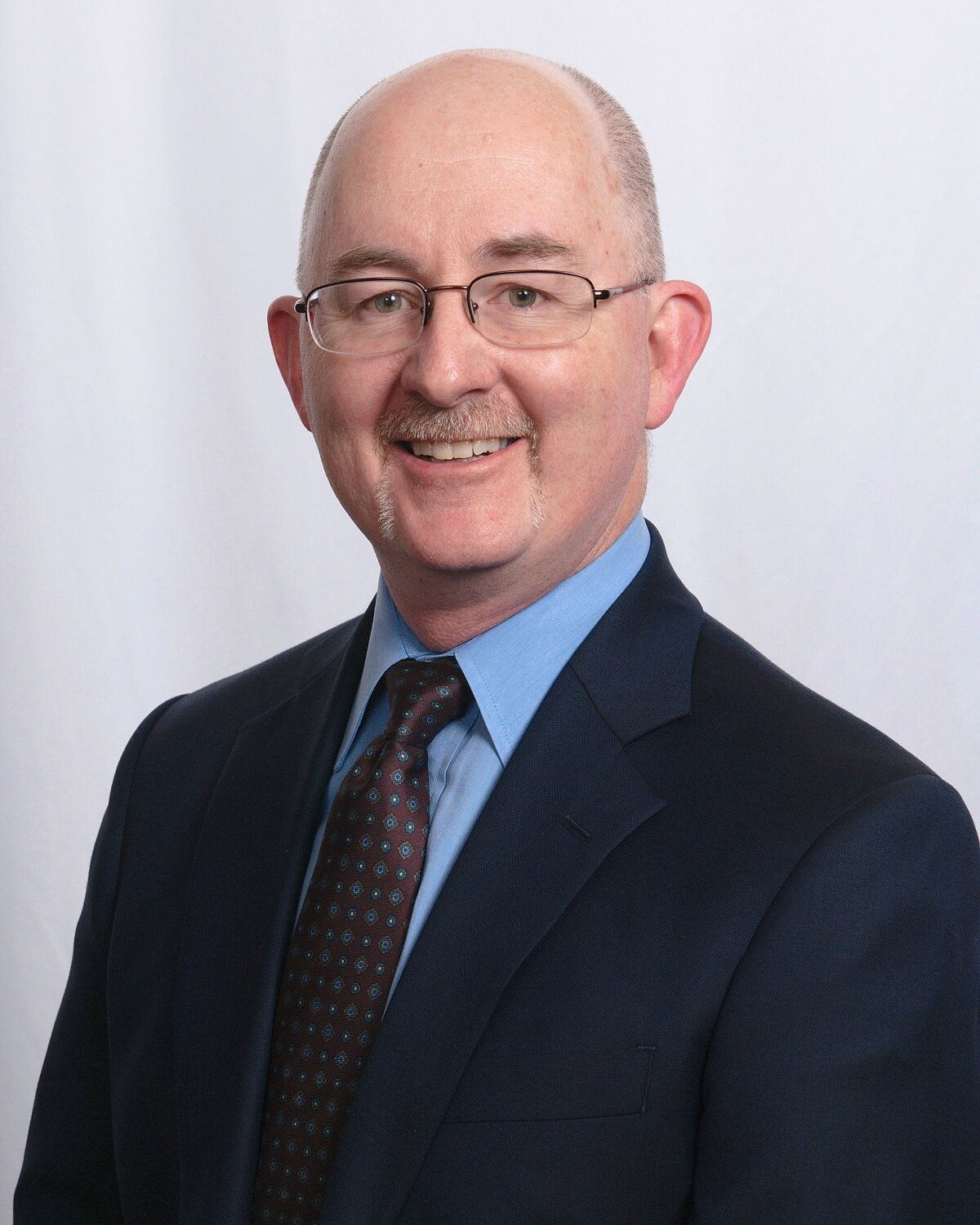
Tell us a little bit about Rural Sourcing Inc.
BR: Rural Sourcing is the biggest onshore outsourcing software development company in the U.S. We’ve just passed a milestone of getting 600 colleagues aboard in total across the U.S. We’re growing faster than other companies in the U.S. who do what we do, and we’re growing quickly in Fort Wayne, too.
Our Fort Wayne office, which opened in 2019, more than doubled in size during the pandemic. When we left the office in March of 2020, we had just a smidge over 30 employees in Fort Wayne. But as of February 1, we are now up to 68 employees. We now have more people who have come to work with us after we left the office than we had before.
We just finished construction on our office during COVID, too, so our colleagues have never been in the fully finished space yet! It’s 16,000 square feet on the corner of Harrison and Wayne Street, and we’re looking forward to growing there.
How did COVID-19 affect your work environment?
BR: COVID has affected us, like almost every business in America. But, we had some advantages that came with our operating model that helped us thrive. First, we have always operated remotely from our clients, so in a sense, working remotely has been the norm for us. Second, our systems exist in the Cloud, so we can operate effectively with only an internet connection. We allowed our Colleagues to take all their equipment home with them; anything they needed to be productive. And, third, each year we practiced a transition to working from home for our business continuity plan.
But the difference starting on March 13th of last year is we started working remotely from each other. That was a big change. In our culture, we had always placed an enormous value on proximity and being close to one another.
How has working remotely impacted your company’s productivity?
BR: Since we’ve gone home, we have not skipped a beat in productivity and quality. Some clients have indicated they feel our delivery has even improved.
How has working remotely impacted your company’s culture?
BR: Our three favorite words at RSI are Colleague, Client, and Community, and we say them in that order for a reason. We put a lot of emphasis on our colleagues because they are at the core of our business. Also, we’ve always given a lot of attention to our new colleagues when they come aboard and that hasn’t changed.
That said, even though we do have such a connected culture at Rural Sourcing, what I learned during the pandemic is this: While I thought proximity was about being physically close, what I realized is that it’s more about “connectedness.”
Having a culture of connectedness—even when we’re at home—has really helped us. It sustained us through those first difficult days of the pandemic. Now, the concept of connectedness is augmenting the idea of proximity.
We’ve become heavy users of tools like Slack, Zoom, and Google Meets to figuratively recreate that physical proximity in a way that has kept us connected and create “virtual proximity.”
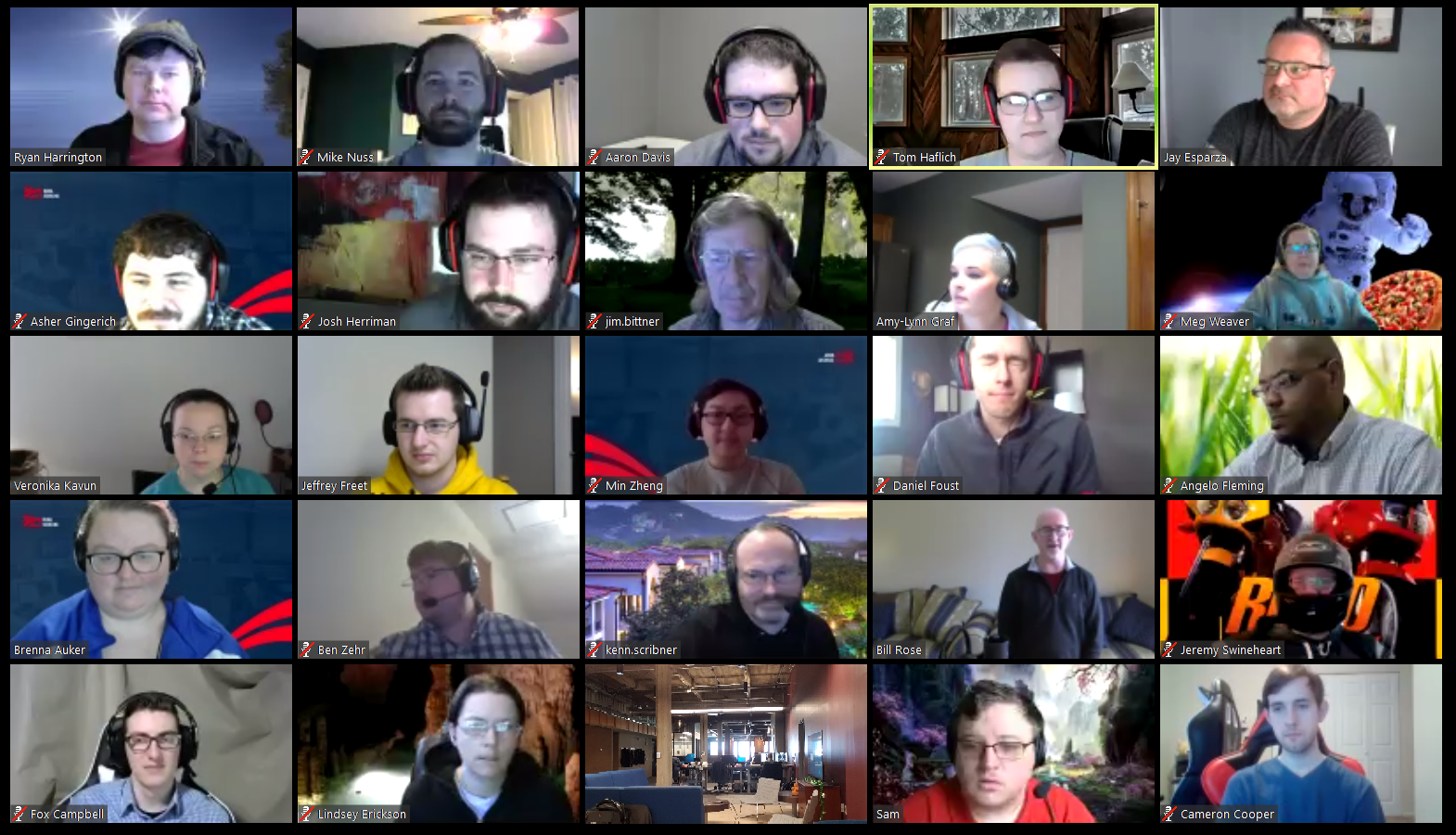
Has your company’s remote work experience shifted your plans for the future?
BR: We’re keeping tabs on how our colleagues feel throughout the work-from-home process to help us determine next steps. We know there’s a population that really misses being in the office (and a new office at that), but there’s also a large population of colleagues who are more interested in a hybrid environment in the future.
Before COVID-19, we were 100 percent in the office. But post-COVID, we’re pretty sure we’re going to have a hybrid environment that is far more liberal in our view of working from home.
Do it Best
“Culture is not something that happens when things are going right. It’s something you build over time that really shines in those challenging situations.”
-Celeste Stevens, Human Resources Manager, & Dent Johnson, Vice President of Merchandising

Tell us a little bit about Do it Best.
DJ: Do it Best is a member-owned hardware, lumber, and building materials cooperative, and we’re the largest privately held company in the state of Indiana. Our corporate headquarters have been here in the Fort Wayne area since 1945, and we have exciting plans to locate at the Electric Works campus in the near future.
We have a large presence domestically with about 450 team members in our New Haven headquarters, largely working in professional roles, along with about 1,500 team members in eight distribution centers and regional lumbar offices across the U.S. We also do business in 50 other countries, primarily in Central and South America, the Caribbean, and Asia.
Despite how hard this pandemic has been, our business has been extremely good. More and more people seem to be finding their way to the independent hardware stores during the pandemic. So we’ve seen double-digit growth in 2020 in line with the industry.

How did COVID-19 affect your work environment?
CS: We’re very collaborative at Do it Best. But as we looked at the health and safety of our team, we did make the decision to move to a remote work model temporarily during the pandemic as we were able to with our sales and professional roles.
Since we’re deemed an “essential” business, it was important to not have any disruption in our service, so we did have a large number of employees still reporting to a physical location throughout the pandemic, too.
DJ: Prior to the pandemic, we already had about 75 people on our field sales team and a number of others in sales who were working remotely. So it’s not that remote work didn’t exist at Do it Best before COVID-19, but most employees at our New Haven headquarters were working in the building. Right now, we’re in the midst of the second phase of remote work, so about 20 percent of the people on my team in New Haven are coming into the office, and 80 percent are still working remotely.
How has working remotely impacted your company’s productivity?
DJ: Luckily, about six months before the pandemic hit, we made a huge technology shift as a company, and we moved everything onto a Google Suite platform, so we were prepared for remote work. But we never imagined how much we would have to rely on it. That was one immediate positive on our end: Our systems were already online. Even so, our collaborative tools were still relatively new to us at the time everyone was leaving the office in the middle of March. But we adjusted, and the technology that is now available in the marketplace has been a game-changer for us. It’s allowed us to work remotely without losing any momentum. Obviously, we still prefer to collaborate in-person, but I was amazed that we really didn’t miss a step as we made that monumental shift to remote work.
Productivity-wise, I’ve been amazed at our team’s ability to handle double-digit growth and more during the summer. Even in the height of the pandemic, we were able to support that growth with our team remote and without any major staffing changes. I think that’s a tribute to the commitment our team has. We leveraged tools to make it happen, but it took a lot of ingenuity and personal commitment. We had impressive productivity throughout 2020.
How has working remotely impacted your company’s culture?
CS: As we’ve started coming back to the office, it was really obvious to us the value of those impromptu conversations with colleagues—the spark of those ideas. We’ve realized that’s where some of our ingenuity happens: In person.
That said, we’ve also learned that culture is not something that happens when things are going right. It’s something you build over time that really shines in those challenging situations. So we’re proud that throughout this entire experience, our culture of collaboration, kindness, patience, and servant leadership has remained steadfast, regardless of us working remotely or not.
DJ: To me, culture becomes even more important when there’s less communication, interaction, or oversight. There were a lot of decisions happening on the fly in 2020, and when collaboration wasn’t possible, it was good to know that I could count on our people to do the right thing because of our culture here. Our culture has carried us through.
Has your company’s remote work experience shifted your plans for the future?
DJ: The joke around here the other day was that it feels like it’s still 2020. The big thing I learned through 2020 is that it’s almost impossible to predict the future. Our ability to see what’s next can be quite limiting. So what I’ve learned is how flexible and committed our teams are and how we can leverage that to make sure we have the right tools and support to deliver for our membership—no matter what happens.
Sure, I can see us taking what we’ve learned and making changes in our work environment because of that, and we have a real opportunity to do that when we move to Electric Works. But what’s crystal clear to me is that we can be productive and connected no matter where our physical headquarters is, and we’re excited about the opportunity to be even more collaborative at Electric Works.


